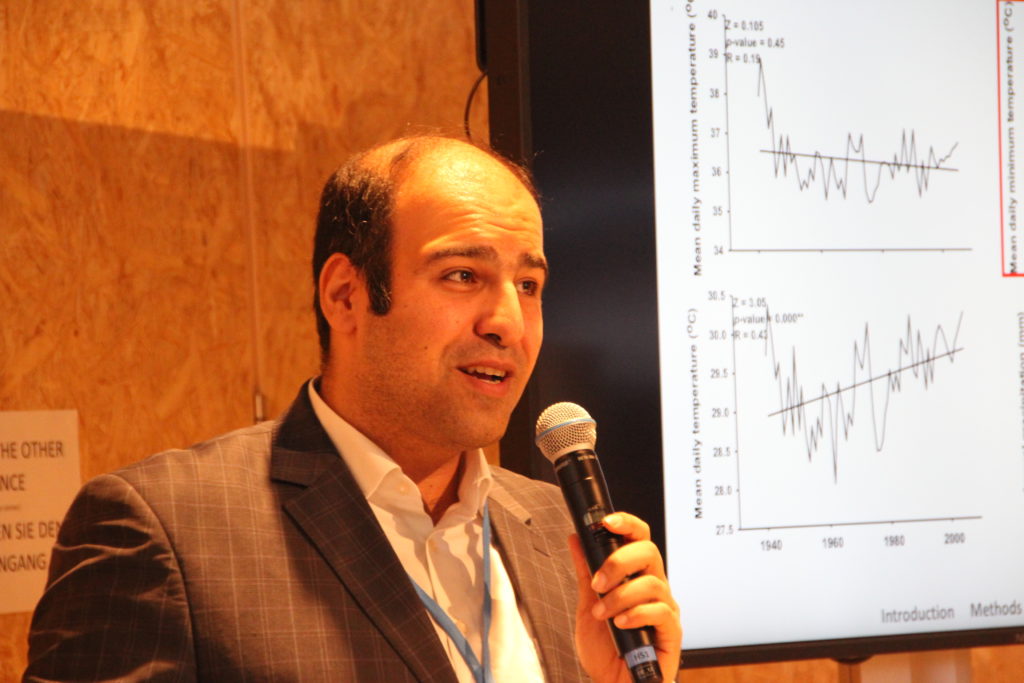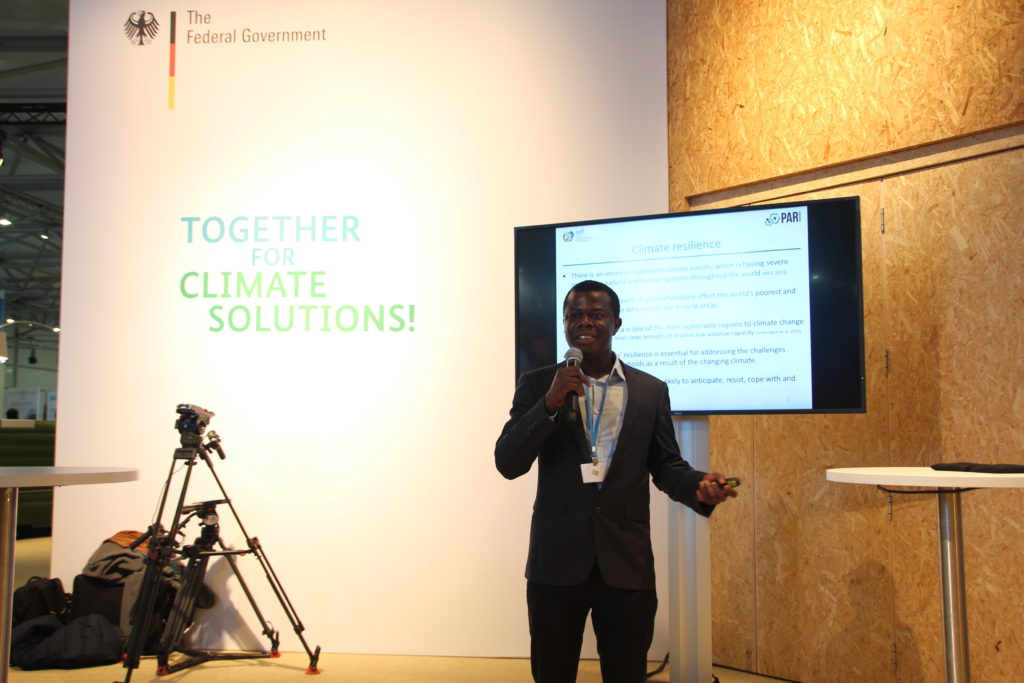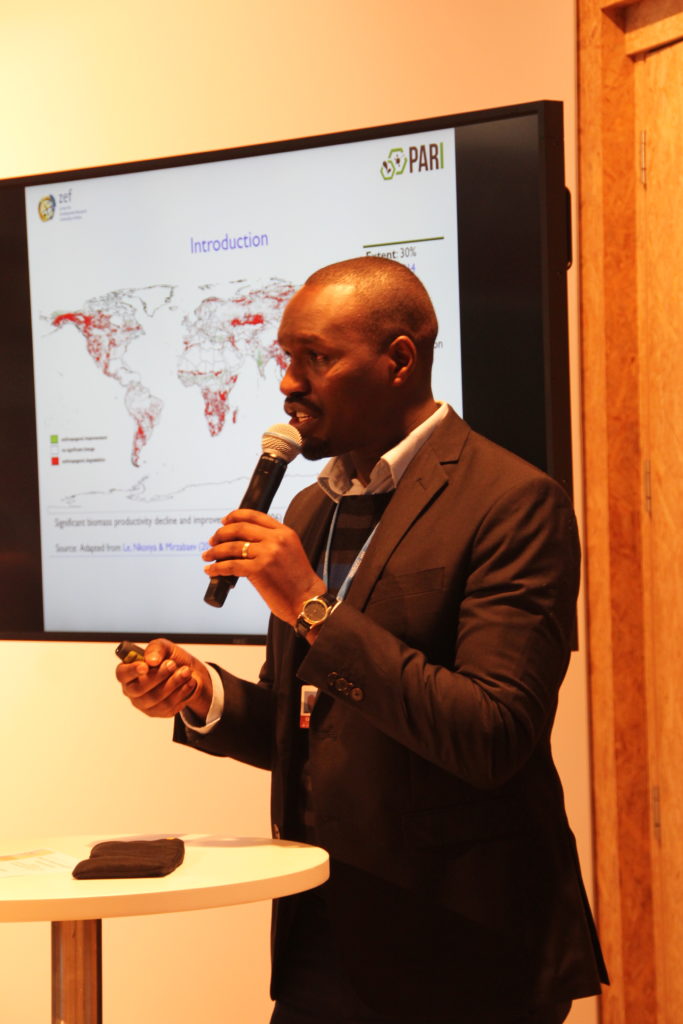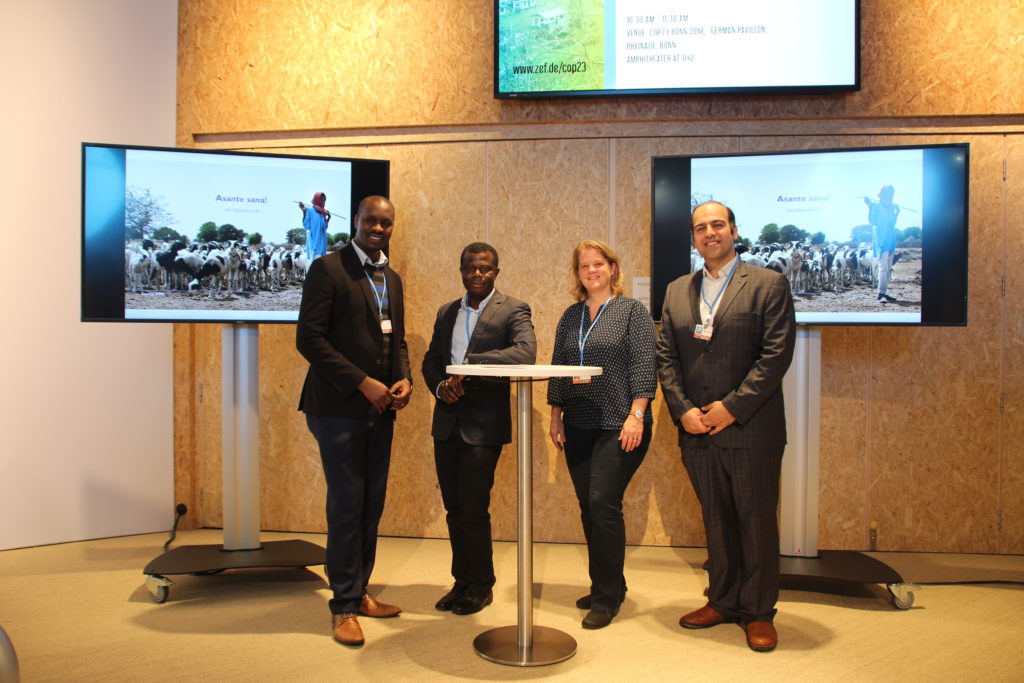On 9 November 2017, researchers from PARI facilitated a one hour session on the topic of Research on Climate and Development in West and East Africa during the COP23 Conference in Bonn at the BMZ pavilion in the Bonn Zone. In these sessions, Dr. Tambo, Dr. Kirui and Dr. Rezaei presented their research, linking the themes of agricultural innovation to climate resilience in Africa.
Dr. Tambo presented on the potential of grassroots farmers innovations as low-cost, locally adaptable, accessible solution to farmers who are most vulnerable to the increasing frequency of extreme weather events. This is in line with the Paris agreement text, which points to traditional knowledge systems as holding valuable solutions for more climate-friendly practices.
Dr. Rezeai highlighted the persistent gap between attainable and actual crop yields in Africa, focusing namely on pearl milet in Niger. He presented the results of crop modelling exercises that help compare the potential of different crop management techniques for bridging the gap. Water availability, a theme closely tied up with climate change, was cited as a main limiting factor in pearl millet production whenever nutrient deficiency is reduced.

Dr. Kirui spoke about the large impacts of land degradation worldwide and its connection to the Sustainable Development Goal number 15 “Life on land: sustainably manage forests, combat desertification, halt and reverse land degradation, halt biodiversity loss.” Land degradation by itself is estimated to cause 300 billion USD in yearly losses, which underscores the immediate importance of adopting sustainable land management practices.



